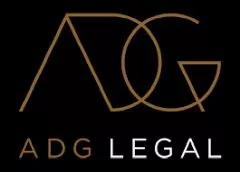- within Litigation and Mediation & Arbitration topic(s)
- within Criminal Law and Technology topic(s)
- with readers working within the Media & Information industries
The DIFC Court may refuse to recognise or enforce an arbitral award if it finds that the enforcement of the award would be contrary to the public policy of the UAE, as stipulated in article 44(1)(b)(ii) of DIFC Law No. 1 of 2008 ("DIFC Arbitration Law").
Reference to the public policy of the UAE in this article naturally raises a question of whether the UAE public policy is the same in the DIFC as elsewhere in the UAE. This question was recently analysed by the DIFC Court of Appeal in Nihan v Nicholas and Niaz [2024] DIFC CA 012. The Court considered several earlier judgments of the DIFC Court and reaffirmed the current position.
Firstly, what is public policy? H.E. Justice Al Madhani defined it in Fiske and Firmin v Firuzeh [2014] DIFC ARB 001 as follows:
"[P]ublic policy can be generally defined as a system of laws, regulations, regulatory measures, or courses of action concerning a public matter and that the source of that public policy is usually laws."
Secondly, does reference in article 44(1)(b)(ii) to the public policy of the UAE indicate that the public policy in the UAE is uniform? The answer is 'yes' and 'no' at the same time. As observed by H.E. Justice Al Sawalehi in Loralia Group LLC v Landen Saudi Company [2018] DIFC ARB 004:
"[T]he uniform UAE public policy allows for differing outcomes in certain circumstances where matters are rightfully brought before the DIFC Courts rather than other UAE courts. While the outcomes may differ, the public policy applied is actually the same. Public policy of the UAE encompasses the constitutional and legislative creation of the DIFC and thus incorporates the intended differences legally allowed within the DIFC."
Accordingly, if the enforcement of an arbitral award is contrary to the onshore UAE laws but not the laws applicable in the DIFC (i.e., DIFC laws and onshore UAE laws applicable in the DIFC), the recognition and enforcement of the award will not be refused by the DIFC Courts. The same is true in respect of the ADGM, which, just like the DIFC, is another special economic zone that has its own legal system and courts where some of the onshore UAE laws are not applicable.
Finally, does any infringement of law amount to a violation of the public policy? The answer is 'no', as the infringement needs to be sufficiently serious to amount to a violation of the public policy. In Banyantree TE Ltd v Meydan Group LLC [2013] DIFC ARB 003, H.E. Justice Omar Al Muhairi endorsed the following approach (as stated in the 2012 Digest of Case Law on the UNCITRAL Model Law): the Court will only refuse recognition or enforcement of an award if the award "offends the most basic and explicit principles of justice and fairness," "evidences intolerable ignorance or corruption on part of the arbitral tribunal," is "contrary to the essential morality of the State," or "discloses errors that affect the basic principles of public and economic life."
The same approach was followed in Lucinethlucineth v Lutinalutina Telecom Group Ltd [2019] DIFC ARB 005, and later in Lachesis v Lacrosse ARB 005/2020 where the Court stated that even if an award conflicted with the UAE public policy, "unless the conflict was sufficiently serious – for example, if recognising the [a]ward and enforcing it would require abandoning the very fundaments on which this legal system is based – it is unlikely that the Court would exercise its discretion to set aside the [a]ward."
Further, the DIFC Court of Appeal confirmed in Nihan v Nicholas and Niaz that infringement of the public policy and non-arbitrability of a dispute are two separate grounds for refusal of recognition or enforcement of an award. The former is dealt with in article 44(1)(b)(i) of the DIFC Arbitration Law. The DIFC Court of Appeal emphasised that this article refers to the DIFC law, and accordingly, non-arbitrability under the onshore UAE law is irrelevant. Accordingly, the DIFC Court of Appeal confirmed that non-arbitrability of the dispute under the onshore UAE law would not require the DIFC Courts to refuse enforcement, unless the dispute is also non-arbitrable under the law applicable in the DIFC. Notably, the DIFC Court of Appeal in Nihan v Nicholas and Niaz was aware that the applicant intended to execute the award in the onshore UAE and not in the DIFC.
Finally, as the DIFC Court of Appeal pointed out in Nihan v Nicholas and Niaz, the two grounds on which the Court may refuse recognition and/or enforcement specified in articles 44(1)(b)(i) and 44(1)(b)(ii) (i.e., non-arbitrability under the DIFC law and infringement of the UAE public policy) are the same grounds on which a DIFC-seated award may be set aside pursuant to article 41(2)(b) of the DIFC Arbitration Law. Accordingly, the DIFC Courts' approach to setting aside a DIFC-seated award on these grounds will be the same or very similar to refusing recognition or enforcement of an award from another seat.
By way of conclusion, the UAE public policy in matters governed by the laws of and decided by the courts of the DIFC or ADGM differs in some respect from the public policy in matters governed by the laws of and decided by the courts of the onshore UAE. A dispute may be arbitrable when the seat of arbitration is in the DIFC and/or ADGM but not arbitrable when the seat is in the onshore UAE. Therefore, whether an arbitral award is enforceable in the UAE may depend on whether the enforcement proceedings are brought before the DIFC, ADGM, or onshore UAE Courts.
The content of this article is intended to provide a general guide to the subject matter. Specialist advice should be sought about your specific circumstances.


